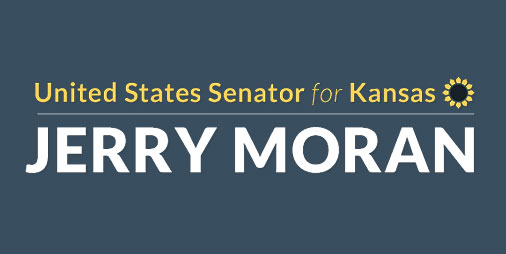Source: United States Senator for Kansas – Jerry Moran
WASHINGTON – U.S. Senators Jerry Moran (R-Kan.) and Roger Marshall, M.D. (R-Kan.) joined a bipartisan group of their colleagues in urging the Environmental Protection Agency (EPA) to strengthen the Renewable Fuel Standard (RFS). The senators are calling on EPA to maintain the blending requirements for 2023, eliminate proposed retroactive cuts to the renewable volume obligations (RVOs) and increase RFS volumes for advanced biofuels.
“The RFS creates competition in the marketplace, keeping fuel costs low for consumers while bringing down carbon emissions,” the senators wrote in a letter to EPA Administrator Michael Regan. “By taking the steps enumerated above, EPA can set the RFS on a path that provides stability and growth for the U.S. biofuel sector. In doing so, it can guarantee this essential program continues to function as intended—as a mechanism for reducing emissions, driving economic growth in rural communities, keeping gas prices low, and bolstering national security by promoting an essential homegrown energy source.”
In addition to Sens. Moran and Marshall, the letter was also signed by Sens. Amy Klobuchar (D-Minn.), Chuck Grassley (R-Iowa), Tammy Duckworth (D-Ill.), John Thune (R-S.D.), Debbie Stabenow (D-Mich.), Deb Fischer (R-Neb.), Tina Smith (D-Minn.), Pete Ricketts (R-Neb.), Dick Durbin (D-Ill.), Joni Ernst (R-Iowa), Tammy Baldwin (D-Wis.), Gary Peters (D-Mich.), Mike Rounds (R-S.D.) and Sherrod Brown (D-Ohio).
Full text of the letter can be found HERE and below.
The Honorable Michael Regan
Administrator
Environmental Protection Agency
1200 Pennsylvania Ave NW
Dear Administrator Regan:
We write to you regarding the Environmental Protection Agency’s (EPA) proposed rule, the RFS “Set” rule, which establishes blending volumes for 2023 through 2025 published on December 2, 2022. This proposed rule provides a path forward for this crucial program as America looks to fortify its domestic energy supply and decarbonize the transportation fuels market. Biofuels lower gas prices, drive economic growth, create good-paying manufacturing jobs, and strengthen economies across rural America.
The RFS creates competition in the marketplace, keeping fuel costs low for consumers while bringing down carbon emissions. A Set rule that accurately reflects market conditions will provide certainty to the marketplace, driving economic growth, creating jobs, and growing biobased manufacturing capacity across rural America. We support EPA’s effort to maintain consistency in the program’s implementation and agree with many of the key provisions of the Set rule. However, there are improvements needed that are essential. By taking the actions below when finalizing the Set rule by June 14, 2023, you can give farmers and biofuel producers the confidence that the RFS is an EPA priority.
- The final rule must increase the proposed volumes for advanced biofuels and biomass-based diesel fuels to accurately reflect market conditions. The proposed volumes are inaccurate, would shrink the market, put nearly $5 billion near-term investments to increase crush capacity at risk, and destabilize the development of sustainable aviation fuel (SAF). EPA’s proposal sets volumes lower than current blending levels—lower than the added capacity that is coming online in 2023 alone—and is inconsistent with estimates of production.
- Any increase in advanced volumes must be accompanied by an equivalent increase in the total volumes. This approach will ensure that the overall amount of biofuels blended increases, maximizing benefits, and ensuring that growth in the advanced pool does not undercut conventional volumes or investment in second generation biofuels.
- The final rule must adopt the implied conventional volumes in the proposal. The proposed values for conventional biofuel will maximize carbon emissions reductions, continue to stimulate growth in biobased manufacturing, and reduce gas prices. The proposal properly includes the remaining 250 million gallons from the 2017 court remand in the 2023 volume requirements, completing its work as required by the courts six years ago.
- EPA must increase its projections for liquid cellulosic biofuel production and increase advanced biofuel volumes concurrently. With EPA guidance now published for corn kernel fiber (CKF) cellulosic biofuel production, we look forward to prompt processing of the CKF registrations that have been awaiting action at EPA in some cases for years. With these CKF volumes coming into the program and near-term coproduction of CKF already happening, EPA should project volumes above zero for corn kernel fiber output for the multiyear RVO.
- EPA should adopt the Department of Energy’s Argonne National Lab’s GREET Life-cycle assessment (LCA) modeling. The agency has acknowledged that its current approach to LCA modeling is outdated. DOE’s Argonne GREET model is recognized globally as the state-of-the-art model for LCA, and it should be used in all analyses related to biofuels.
- EPA should finalize its proposal to provide a small refinery exemption (SREs) in only extraordinary circumstances. The granting of SREs in previous years destabilized the renewable fuels market and brought economic harm to rural communities. We support EPAs decision to enforce the intent of the law and grant SREs only in a limited capacity.
By taking the steps enumerated above, EPA can set the RFS on a path that provides stability and growth for the U.S. biofuel sector. In doing so, it can guarantee this essential program continues to function as intended—as a mechanism for reducing emissions, driving economic growth in rural communities, keeping gas prices low, and bolstering national security by promoting an essential homegrown energy source.
Thank you for your consideration.
# # #
